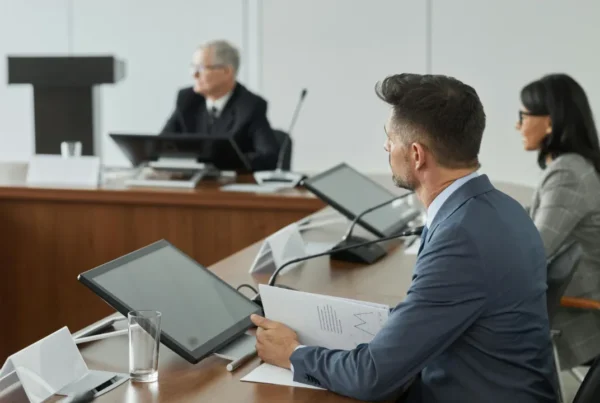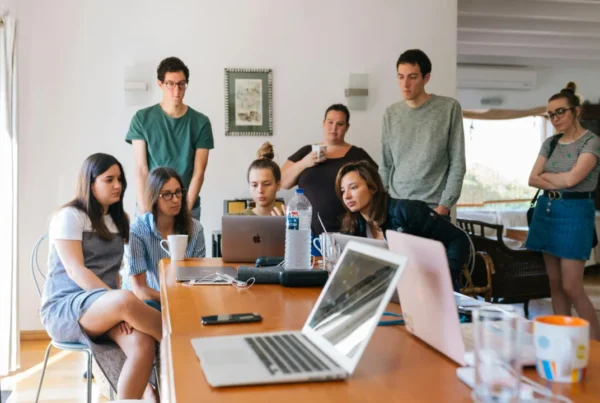
The O1B visa category can be a more approachable visa than its counterpart, the O1A visa for individuals in sciences, education, business, or athletics.
This is because “Extraordinary ability” is defined differently in the O1A context as compared to the O1B context.
- Extraordinary ability in the O1B context is defined as “distinction,” “a high level of achievement,” “significantly above that ordinarily encountered” to the extent that a person is “renowned, leading, or well-known” in their field.
- Extraordinary ability in the O1A context requires an applicant to show a level of expertise placing the individual at “one of the small percentage who have arisen to the very top of the field of endeavor.”
In addition to different standards used to define extraordinary ability, there are differences in the specific evidentiary criteria required for O1B classification as compared to O1A classification, where the latter mirrors the EB1A requirements more closely.
Because of these differences, it may require overcoming some additional hurdles to go from an O1B visa to an EB1A extraordinary ability green card. In navigating this challenge, the following five tips may be useful.
1. To qualify for the EB1A green card, the applicant must demonstrate “sustained national or international acclaim” recognized in their fields, at a level of being “the small percentage of individuals at the very top of their fields of endeavor.”
It is important to recognize that the standard for meeting the EB1A definition of “extraordinary ability” is quite different from the level required for O1B petitions. The EB1A is looking for evidence that the applicant is one of the select few at the “very top” of their field; whereas the O1B eligibility can be met by showing “distinction” in their field “significantly above” others in the field, but need not reach the very top echelon.
2. Receipt of a preeminent prize (Grammys, Oscars), or receipt of lesser nationally or internationally recognized prizes or awards.
Although receipt of prizes or awards is not among the six O1B evidentiary criteria, it is a specific criterion of its own in the EB1A context and could significantly boost the strength of an applicant’s petition. Note that prizes given to an applicant’s employer does not count; the applicant must be the named recipient of the award or prize.
3. Experience judging the work of others in the field.
Similarly, although judging experience is not among the six O1B evidentiary criteria, it is a specific consideration for the EB1A analysis. The applicant would show proof that they were invited to serve as a judge – or on a panel of judges – on a competition, contest, or other forms of selection regarding the work of other professionals in the applicant’s field. For example, a singer being invited to sit on the panel of Portugal’s The Voice would be persuasive evidence that the singer is a recognized as a top expert in the music industry in that country.
4. Membership in professional associations in the field where a selective process is required for admission, judged by experts in the field.
Similarly, membership in professional associations where an applicant goes through a rigorous selection process, judged by experts, can be helpful support for an EB1A petition. Supporting evidence would include not only a certificate or letter from the organization proving that an applicant is a member in good standing, but also an explanation of the selection criteria for membership, which should require more than simply the payment of a fee or accumulating a certain number of years of experience. Third-party reports or media regarding the prestige of the organization or association can also be helpful.
5. Published material about the individual related to their work in the field in major media, major professional publications, or major trade publications.
More so than in the O1B context, in which the relevant criteria includes publications in various kinds of media sources, the EB1A analysis focuses the individual being featured on “major” media, “major” trade publications, or “major” professional publications. Higher scrutiny is placed on the circulation figures of the media sources, and whether the article is truly about the individual and mentions the individual in relation to a discussion of their work in the field. The higher volume of published material an applicant can show, the stronger the overall EB1A case will be that the individual truly commanded “sustained national or international acclaim” as a top player in their field.
In conclusion, if an artist on O1B status is considering transitioning at some point in their career to an EB1A green card, it is recommended to strategize their public-facing activities from early on to accumulate a volume of relevant evidence, as outlined above, that would boost the strength of their EB1A petition. Be sure to consult an experienced attorney who can provide the most relevant information and guidance to meet your specific needs.


